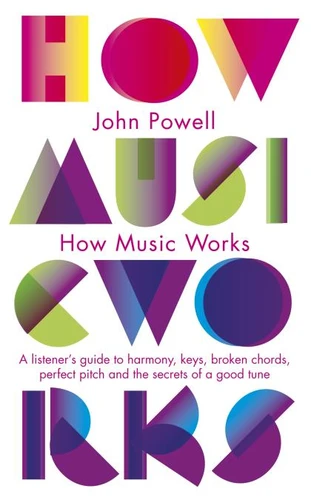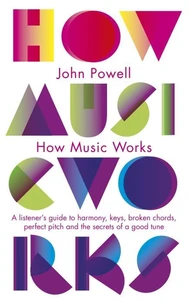How Music Works
Par :Formats :
Disponible dans votre compte client Decitre ou Furet du Nord dès validation de votre commande. Le format ePub protégé est :
- Compatible avec une lecture sur My Vivlio (smartphone, tablette, ordinateur)
- Compatible avec une lecture sur liseuses Vivlio
- Pour les liseuses autres que Vivlio, vous devez utiliser le logiciel Adobe Digital Edition. Non compatible avec la lecture sur les liseuses Kindle, Remarkable et Sony
- Non compatible avec un achat hors France métropolitaine
 , qui est-ce ?
, qui est-ce ?Notre partenaire de plateforme de lecture numérique où vous retrouverez l'ensemble de vos ebooks gratuitement
Pour en savoir plus sur nos ebooks, consultez notre aide en ligne ici
- Nombre de pages272
- FormatePub
- ISBN978-0-14-195133-1
- EAN9780141951331
- Date de parution26/08/2010
- Protection num.Adobe DRM
- Infos supplémentairesepub
- ÉditeurPENGUIN
Résumé
·What is the difference between a musical note and any other sort of sound?·What is harmony, and why does it sound good?·Why is it easy to tell the difference between a flute and a clarinet even if they are playing exactly the same note?·Why do ten violins sound only twice as loud as one?·What is perfect pitch, and do I have it?Discover the answers to these and many other questions in John Powell's charming, straight-talking and ear-opening guide to what music is and how exactly it works.
Written by a composer with a PhD in physics, How Music Works is a unique and entertaining guide. Opening up the world of acoustics and the science of music to deepen our appreciation and understanding of what we listen to, How Music Works covers subjects from the difference between how we hear a musical note and any other kind of sound, to a brief history of the scale system, why a run of arpeggios sounds 'romantic' and why a flute sounds different to a clarinet.
The perfect book for players and listeners alike.
Written by a composer with a PhD in physics, How Music Works is a unique and entertaining guide. Opening up the world of acoustics and the science of music to deepen our appreciation and understanding of what we listen to, How Music Works covers subjects from the difference between how we hear a musical note and any other kind of sound, to a brief history of the scale system, why a run of arpeggios sounds 'romantic' and why a flute sounds different to a clarinet.
The perfect book for players and listeners alike.
·What is the difference between a musical note and any other sort of sound?·What is harmony, and why does it sound good?·Why is it easy to tell the difference between a flute and a clarinet even if they are playing exactly the same note?·Why do ten violins sound only twice as loud as one?·What is perfect pitch, and do I have it?Discover the answers to these and many other questions in John Powell's charming, straight-talking and ear-opening guide to what music is and how exactly it works.
Written by a composer with a PhD in physics, How Music Works is a unique and entertaining guide. Opening up the world of acoustics and the science of music to deepen our appreciation and understanding of what we listen to, How Music Works covers subjects from the difference between how we hear a musical note and any other kind of sound, to a brief history of the scale system, why a run of arpeggios sounds 'romantic' and why a flute sounds different to a clarinet.
The perfect book for players and listeners alike.
Written by a composer with a PhD in physics, How Music Works is a unique and entertaining guide. Opening up the world of acoustics and the science of music to deepen our appreciation and understanding of what we listen to, How Music Works covers subjects from the difference between how we hear a musical note and any other kind of sound, to a brief history of the scale system, why a run of arpeggios sounds 'romantic' and why a flute sounds different to a clarinet.
The perfect book for players and listeners alike.






